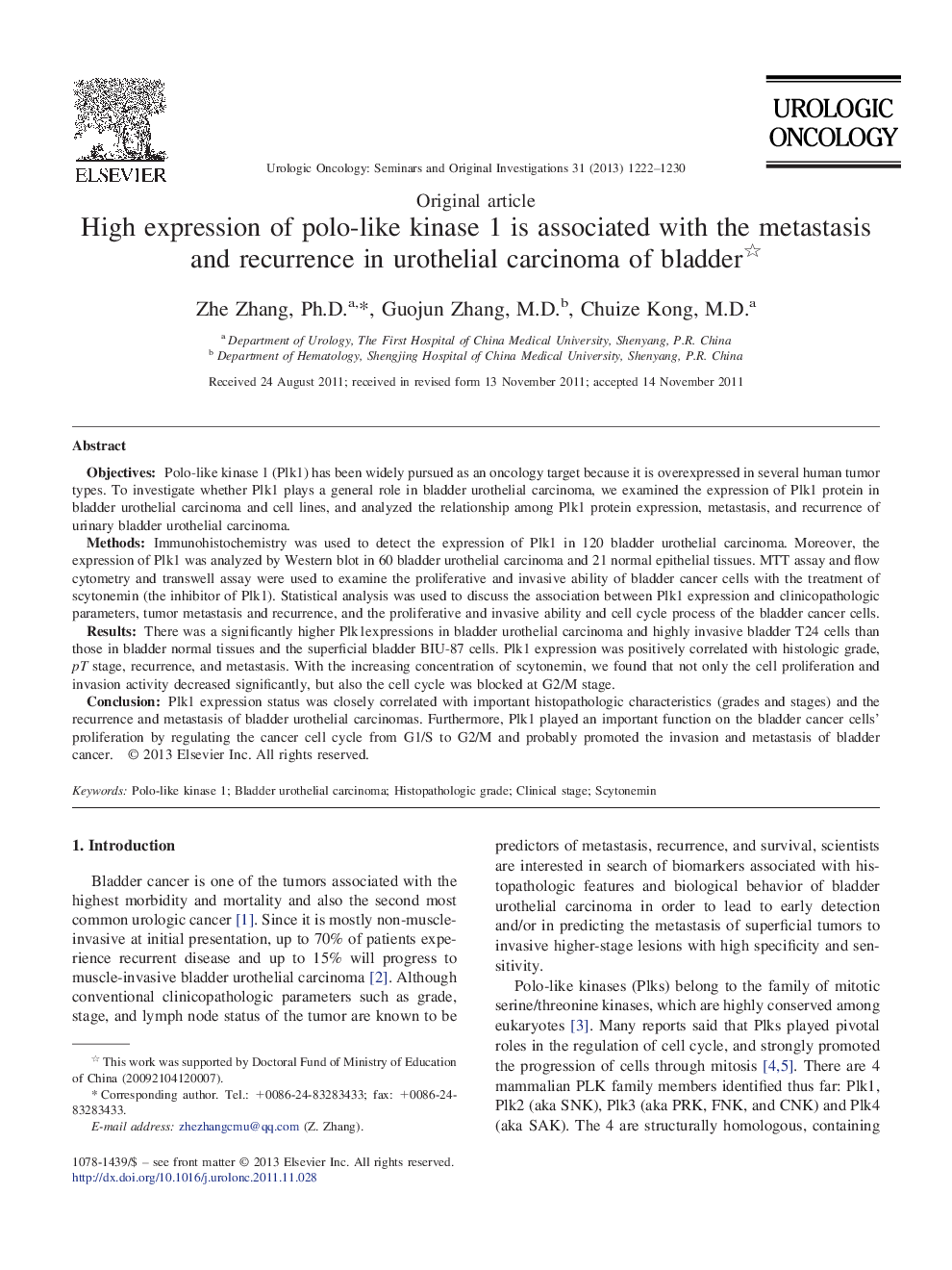| Article ID | Journal | Published Year | Pages | File Type |
|---|---|---|---|---|
| 3999920 | Urologic Oncology: Seminars and Original Investigations | 2013 | 9 Pages |
ObjectivesPolo-like kinase 1 (Plk1) has been widely pursued as an oncology target because it is overexpressed in several human tumor types. To investigate whether Plk1 plays a general role in bladder urothelial carcinoma, we examined the expression of Plk1 protein in bladder urothelial carcinoma and cell lines, and analyzed the relationship among Plk1 protein expression, metastasis, and recurrence of urinary bladder urothelial carcinoma.MethodsImmunohistochemistry was used to detect the expression of Plk1 in 120 bladder urothelial carcinoma. Moreover, the expression of Plk1 was analyzed by Western blot in 60 bladder urothelial carcinoma and 21 normal epithelial tissues. MTT assay and flow cytometry and transwell assay were used to examine the proliferative and invasive ability of bladder cancer cells with the treatment of scytonemin (the inhibitor of Plk1). Statistical analysis was used to discuss the association between Plk1 expression and clinicopathologic parameters, tumor metastasis and recurrence, and the proliferative and invasive ability and cell cycle process of the bladder cancer cells.ResultsThere was a significantly higher Plk1expressions in bladder urothelial carcinoma and highly invasive bladder T24 cells than those in bladder normal tissues and the superficial bladder BIU-87 cells. Plk1 expression was positively correlated with histologic grade, pT stage, recurrence, and metastasis. With the increasing concentration of scytonemin, we found that not only the cell proliferation and invasion activity decreased significantly, but also the cell cycle was blocked at G2/M stage.ConclusionPlk1 expression status was closely correlated with important histopathologic characteristics (grades and stages) and the recurrence and metastasis of bladder urothelial carcinomas. Furthermore, Plk1 played an important function on the bladder cancer cells' proliferation by regulating the cancer cell cycle from G1/S to G2/M and probably promoted the invasion and metastasis of bladder cancer.
